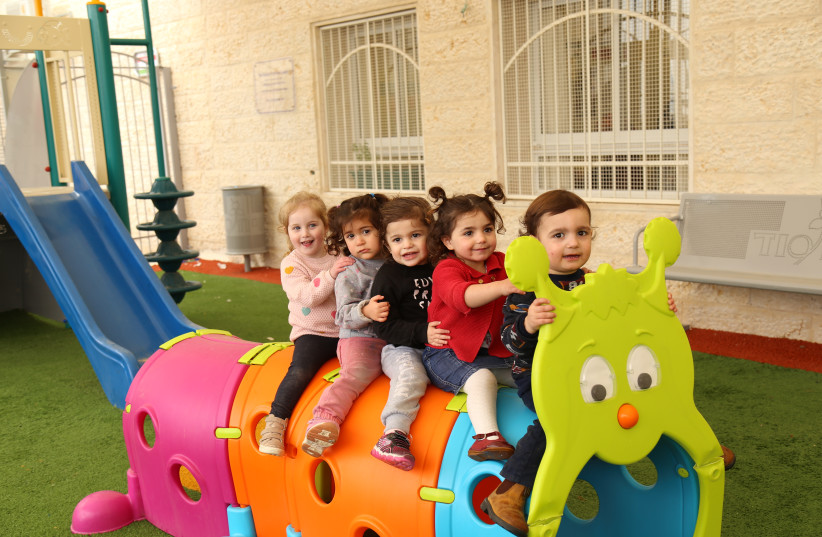The Education Ministry has information on only three-quarters of evacuated children, the Knesset Health Committee and the Knesset Education, Culture, and Sports Committee were told Monday.
Protecting special-education institutions was a priority, Health Committee chairman Yonatan Mishraki (Shas) and Education, Culture, and Sports Committee chairman Yosef Taieb (Shas) said, adding that they would continue to monitor problems and see to it that they are repaired.
“A strong society is measured by its concern for the weak,” they said in a joint statement.
During a tour organized by his committee, the challenges of shutting down the entire education system, and special education in particular, came up, especially protecting and recruiting manpower, Taieb said.
Mishraki said the 300,000 children in Israel with special needs must be helped in ordinary times and certainly in an emergency.

Taieb and Mishraki called on the Education Ministry to hire recently discharged soldiers to work with children of evacuees and special-needs youths.
Tami Umansky, director of the special-education division at the Education Ministry, said 75% of the evacuated pupils, their temporary addresses, and the education systems that “adopted” them were registered on computers. The data was only partial because some parents had refused to provide details or the children were still moving from place to place, she said.
There was no budget limit, Umansky said, adding that all of her requests for accessibility are being carried out, but in some special-education institutions, there is activity only on some days.
Many day care centres lack adequate emergency shelters
Anat Greifner, a representative of the Welfare and Social Affairs Ministry, spoke about the operation of rehabilitation daycare centers for special education, as well as integration into the existing institutions for the children of the evacuees. In some places, however, there was a lack of protection against rockets and missiles, she said.
According to the Knesset Information and Research Center, the authorities do not have complete and accurate information on the number of children with disabilities in Israel, and there is no accurate information on the number of those who were evacuated from their homes in the North and the South.
Since the beginning of the war, a Justice Ministry hotline has received about 100 public inquiries related to the war, including the lack of protected spaces in places of residence, the integration of children with disabilities in educational institutions, and the adaptation of alternative educational institutions according to the needs of the disabled who were evacuated, the committees were told.
Shas MK Erez Malul cited the State Comptroller’s Report regarding failures in the special-education system, especially the lack of transportation, a dedicated budget for caregivers, and the lack of shelters.
Revital Len-Cohen of the Coalition of Parents for Children with Special Needs told the committees about children who have not yet completed their diagnosis due to a lack of documents. She requested an interim year in which each child’s eligibility for aid would not be determined by their diagnosis.
